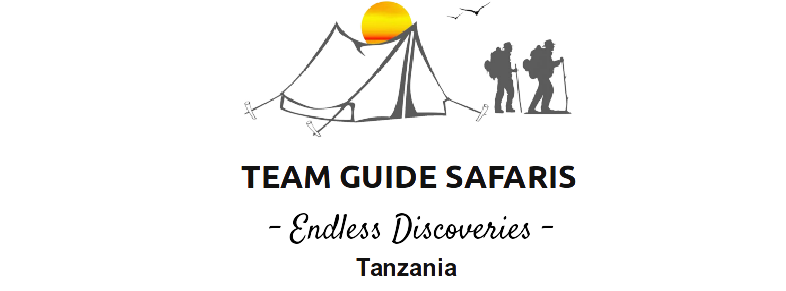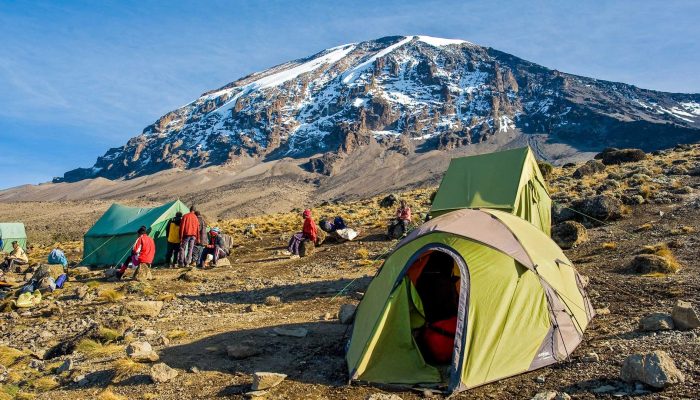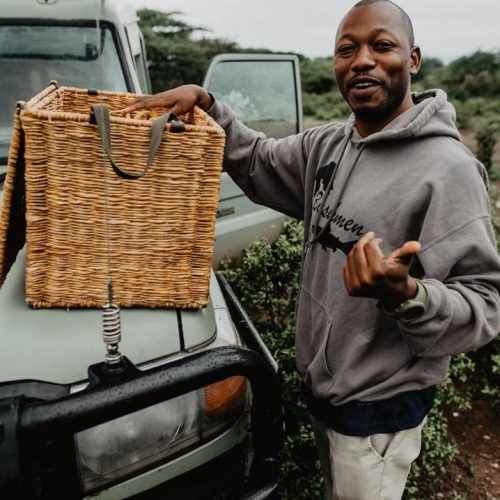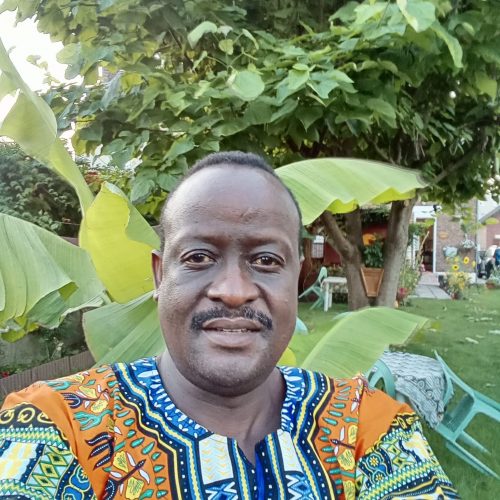Day 1: Arrival
Pick and transfer to a Comfortable Hotel. Arrive for Diner. After diner, you will be given an overall Kilimanjaro briefing from your Head Guide.
Day 2: Relaxing day hotel -. Kilimanjaro Briefing
We have an having relaxing day and briefing this means that the climb will starts on 26 th March 2020 and end on 31 st March.
Day 3: Machame gate -Machame camp
Machame Gate to Machame Camp
Elevation: 1.800m to 3.000m –Distance 11 km –Trekking-Time 5-7 hours –Rainforest At 9am you will be met by the rest of our guides and porters. Following a final cross-check of equipment and supplies, our staff will drive you to the Machame Gate. Anything you do not want to take with you on the mountain can be left at a lock up in the hotel. Once at the gate you will be given
a packed lunch and after registration with the Kilimanjaro Park office your climb will begin with ascending into the rainforest. During the day at about half way up we will have a break and you can enjoy your packed lunch. We will reach the Machame Camp in late afternoon. After your arrival and registration at Machame Camp you will be taken to your camp and tent which has already been set up by the porters who ran ahead, where you will have greeted with boiled drinking water and hot washing water. Once you have freshened up and settled in, a hot dinner will be served in the mess-tent.
Day 4: Macahame camp – Shira cave – Camp
Machame Camp to Shira Camp
Elevation: 3.000m to 3.850m –Distance 9 km –Trekking-Time 4-6 hours –Moorland. You will be woken up after your first night on the mountain with a nice cup of coffee, tea or hot chocolate at 6:30am in your tent. After breakfast we leave the rainforest and continue our ascent crossing a small valley into open moorlands where the vegetation is sparse with small shrubs and
up to a steep rocky ridge. After a short break, our route turns onto a river gorge and up towards Shira Plateau where you will catch your first glimpse of the Western Breach and its stunning glaciers. Continuing on to Shira Camp, where the cook will welcome you with boiled drinking water and hot washing water. You can then put your feet up with some snacks and a hot lunch. After
lunch, there is plenty of time to explore the Shira Caves, take pictures, write your journal or just relax and rest until being served your hot evening meal. Due to the camp being very exposed it can get very cold and sometimes windy.
Day 5: Shira cave Camp – Baranco Camp
Shira Camp –Lava Tower (4.600m) –to Barranco Camp
Elevation: 3.850m to 4.600m to 3.950m – Distance 12 km –Trekking-Time 6-7 hours – Semi-desert
Your daily morning wakes up with a hot drink will be followed by a hot breakfast and then we pack up leave Shira Camp for a 4-5-hour trek to the well-known land mark of Lava Tower (4.600m) for acclimatization. Once reaching Lava Tower we will have a short break for lunch for some bonus acclimatization before starting a 2-hour descent by 650m to Barranco Camp. This is following the golden rule of acclimatization „ climb high and sleep low”. This will be our toughest day so far but the climb offers multiple terrific opportunities for photos. As we descend through the valley, the amazing sight of the Giant Groundsels is bound to stop you in your tracks. Barranco Camp gives you
a beautiful view of the Western Breach and Breach Wall and be prepared with your camera while you are waiting for dinner for what could be one of the most spectacular sunsets you have ever seen as the sun drops down into the valley.
Day 6: Baranco Camp – Barafu Camp
Barranco Camp (3,950m/12,960ft) to Karanga Valley (4,200m/13,780ft)
Elevation Gain: 250 meters, 820 feet Distance: 7 Kilometers
Leave Barranco Camp after breakfast for Karanga Valley. The day begins with a 1.5 hour scramble up Barranco Wall. This is the hardest part of the day and in some places, you will have to use your hands to pull your body up. After reaching the top make a short descent into the greener Karanga Valley. We generally stop for lunch on the ridge above the valley. After Lunch we will proceed from
Karanga Valley (4,200m/13,780ft) to Barafu Camp (4,600m/15,100ft)
Elevation Gain: 400 meters, 1,320 feet Distance: 6 kilometers
On the way to Barafu, view several of Kibo’s glaciers as well as the junction that connects the descent route, Mweka, with the Machame trail. Topping out just below the Heim Glacier, you can now appreciate just how beautiful Kilimanjaro really is. The route then heads down through the Karanga Valley and goes over intervening ridges and valleys to join the Mweka Route, which will be your descent route. You have now completed the South Circuit, which offers views of the summit from many different angles. For now, all eyes are still on the summit, so turn left and hike up the ridge for another hour to the Barafu Hut.
The last water on the route is in the Karanga Valley; there is no water at Barafu Camp, even though Barafu is the Swahili word for “ice.” The famous snows of Kilimanjaro are far above Barafu Camp near the summit of the mountain. Your tent will be pitched on a narrow, stony, wind-swept ridge. Prepare your
equipment and warm clothing for your summit climb. This should include replacing your headlamp and camera batteries, and to prevent freezing, consider carrying your water in a thermal flask. Try to go to bed early, and try to get more hours of precious sleep. Try to sleep as soon as you finish dinner as you will awake before midnight for your summit hike.
Day 7: Summit Day!! :
Barafu Camp –Stella Point –Uhuru Peak (5.895m) –Mwenka Hut
Elevation 4.600m to 5.732 to 5..895m to 3.100m –Distance 7 km ascent 23 km descent
–Trekking-Time 6-8 hours ascent and 7-8 hours descent –stones creed and ice field–glaciers
The wake-up tea will be served at11:30pmwith the departure at midnight. After a hot drink and some biscuits, we will start the challenge for the summit. Our initial 6hour climb begins in the dark with only our headlamps and guides to show us the way through the thick scree and winding pathways of Ratzel and Rebmann Glaciers until we reach Stella Point. Many say this is the most
challenging part of the entire climb but you will be rewarded with what is perhaps the most emotional and beautiful sunrise you have seen nor ever will see in your life. After taking some pictures at the sign, and a short rest we will join the last part of the Marangu route to continue 1 – 2more hours to reach your ultimate goal-the summit –the highest peak of Africa –Uhuru Peak
at5.985 m.
Congratulations!! You are now standing on the “Roof of Africa”. Our guides will take pictures of you at the world-famous Uhuru sign and post it on Facebook for your family and friends at home. After a few minutes spent at the summit, due to the altitude and cold, it is important to start our descent. We will descend through sliding scree and winding pathways for about 3 hours
back to Barafu camp.
On reaching Barafu Camp the rest our team will congratulate you and welcome you with a hot lunch. You will have the chance for a longer break before we start the next descent to Mweka Camp.
Trekking poles are very useful in this part of the descent. In the camp you will have a last fantastic view on the summit–finding it hard to believe that only a few hours ago you were stood at the top.And after this long day, you can enjoy your dinner and your last day on the mountain.
Day 8: Mweka Hut – Mweka Gate/Back to your Hotel
Mweka Camp to Mweka Gate Elevation 3.100m to 1.800m –Distance 10 km –Trekking-Time 3 -4 hours –Rainforest.
Once again you will be woken for your final celebratory breakfast where our team will thank and congratulate you in their unique, special way! This is also the opportunity for you to say thank you for their support and encouragement and show your appreciation by giving a tip to each of them or to the team. We will then set off for the final 3hour scenic descent to Mweka Gate. At the gate you will get the chance to have a celebratory beer/champagne while the equipment is loaded in the van and then it is off to your Hotel in Arusha for certificate of achievement and celebrations.
Day 9: Departure
After breakfast, Proceed with Safari Extension or Flight back home






